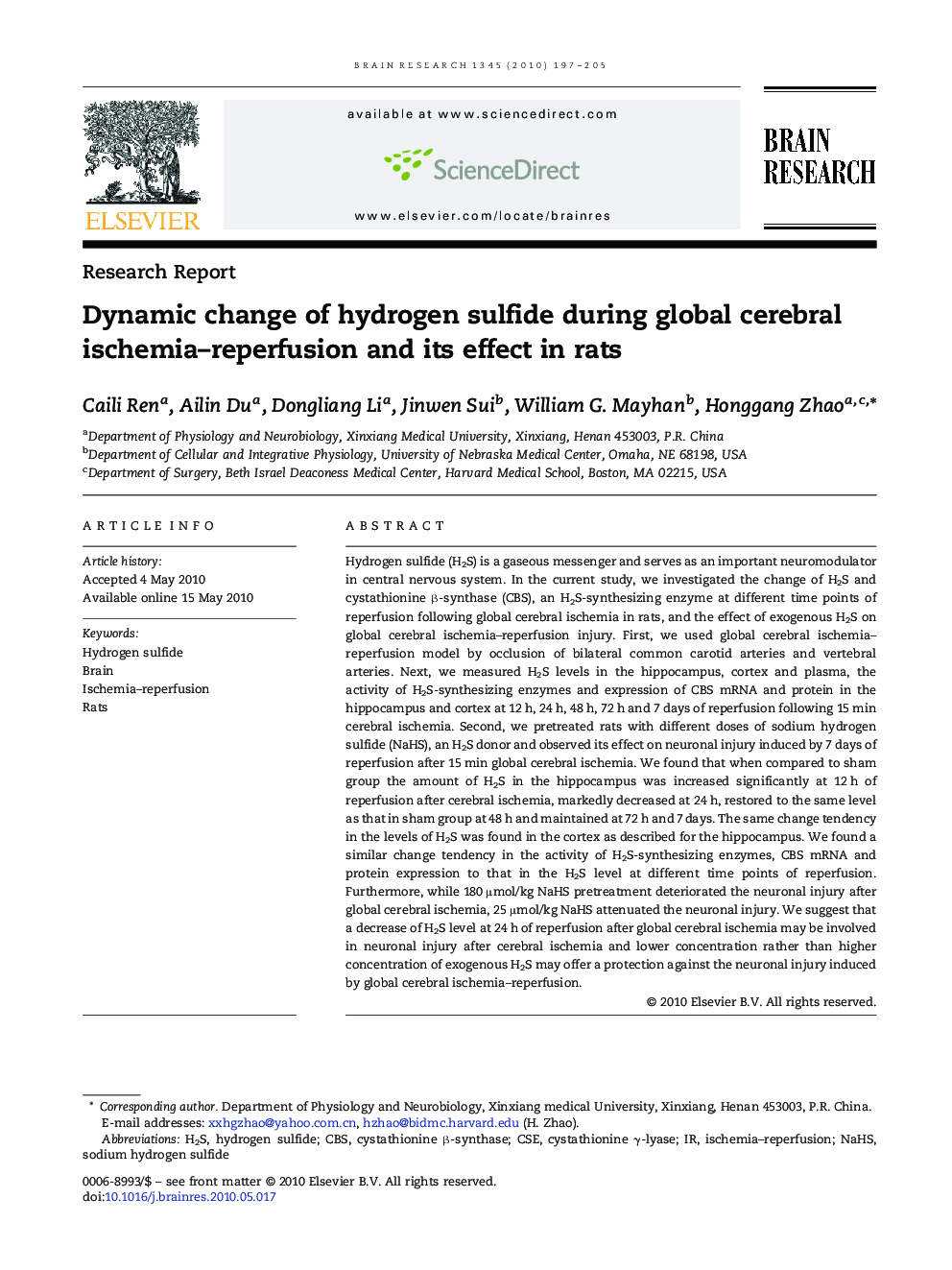| کد مقاله | کد نشریه | سال انتشار | مقاله انگلیسی | نسخه تمام متن |
|---|---|---|---|---|
| 4326754 | 1614094 | 2010 | 9 صفحه PDF | دانلود رایگان |

Hydrogen sulfide (H2S) is a gaseous messenger and serves as an important neuromodulator in central nervous system. In the current study, we investigated the change of H2S and cystathionine β-synthase (CBS), an H2S-synthesizing enzyme at different time points of reperfusion following global cerebral ischemia in rats, and the effect of exogenous H2S on global cerebral ischemia–reperfusion injury. First, we used global cerebral ischemia–reperfusion model by occlusion of bilateral common carotid arteries and vertebral arteries. Next, we measured H2S levels in the hippocampus, cortex and plasma, the activity of H2S-synthesizing enzymes and expression of CBS mRNA and protein in the hippocampus and cortex at 12 h, 24 h, 48 h, 72 h and 7 days of reperfusion following 15 min cerebral ischemia. Second, we pretreated rats with different doses of sodium hydrogen sulfide (NaHS), an H2S donor and observed its effect on neuronal injury induced by 7 days of reperfusion after 15 min global cerebral ischemia. We found that when compared to sham group the amount of H2S in the hippocampus was increased significantly at 12 h of reperfusion after cerebral ischemia, markedly decreased at 24 h, restored to the same level as that in sham group at 48 h and maintained at 72 h and 7 days. The same change tendency in the levels of H2S was found in the cortex as described for the hippocampus. We found a similar change tendency in the activity of H2S-synthesizing enzymes, CBS mRNA and protein expression to that in the H2S level at different time points of reperfusion. Furthermore, while 180 μmol/kg NaHS pretreatment deteriorated the neuronal injury after global cerebral ischemia, 25 μmol/kg NaHS attenuated the neuronal injury. We suggest that a decrease of H2S level at 24 h of reperfusion after global cerebral ischemia may be involved in neuronal injury after cerebral ischemia and lower concentration rather than higher concentration of exogenous H2S may offer a protection against the neuronal injury induced by global cerebral ischemia–reperfusion.
Journal: Brain Research - Volume 1345, 23 July 2010, Pages 197–205